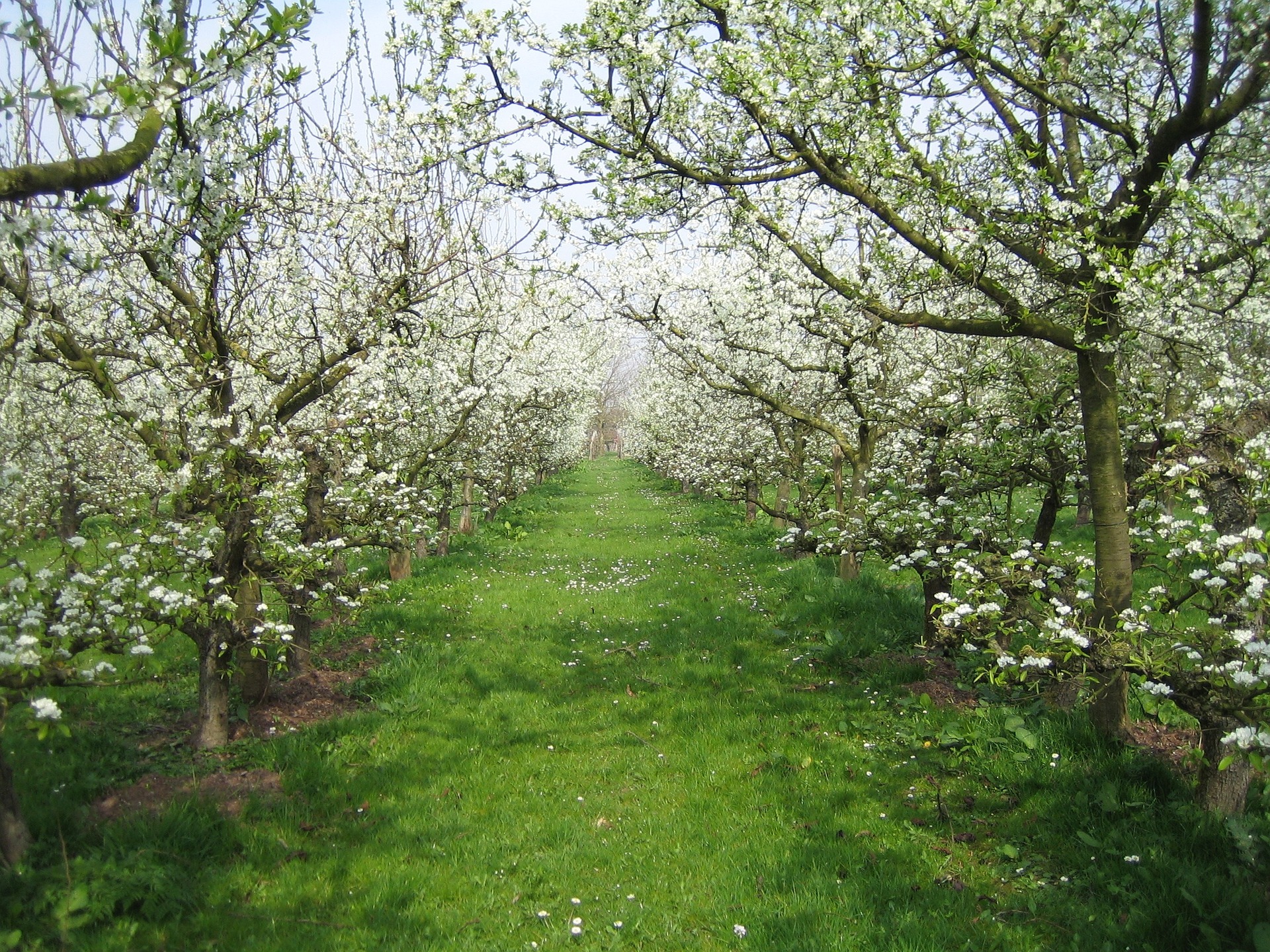Two Hands Orchard grows bittersweet apple trees. These heirloom trees produce apples that are high in tannin, low in acid, while also having good sugar content. The unique combination of tannin and sugar, combined with low acidity, makes these apples perfect for quality hard cider.
Of course, a drinkable cider can be made from a variety of apple types, including many of your hand fruit apples. But these ciders often lack a recognizable apple fruit aroma and flavor, especially when allowed to complete fermentation. To prevent a dry, tasteless cider from hand fruit apples, the maker stops the fermentation before it finishes, leaving a slightly sweet cider.
With Bittersweet apples, the maker allows the fermentation to complete, much as wine grapes are allowed to finish their fermentation, and the tannin carries the apple flavors and aroma across the finish line. While the cider is dry, the apple’s flavor and aroma are center stage. This is the secret to the great cider making areas of the old world. Apples for eating and baking were distinct from the tannic apples used in hard cider fermentation.
Two Hands Orchard set out in 2015 to grow the right apples for hard cider. We searched and found the varieties that produce bittersweet fruit. We allow the fruit to ripen, often until Late October, to produce the fullest apple flavor and sugar possible. After picking, the apples are left to naturally soften, lessening their pectin that can cloud the final product. Finally we shred and press the apples, and then ship to the buyers location, within 24 hours of pressing. At that point it is up to you!
Leelanau Season
Summer on the Leelanau peninsula is interesting. Located between the ‘Big Lake’ and the Grand Traverse Bay we almost always have some wind that dries the orchard from morning dew. We also can experience some drought every year as the low fronts that bring rain travel west to east and must cross Lake Michigan on their way to us. The cold lake water in the spring and early summer often absorbs the energy of the storm and we are left with little or no rain. This can be a problem for smaller trees, but as they trees grow and deepen their roots the opposite is true and we end up with a more concentrated fruit.
